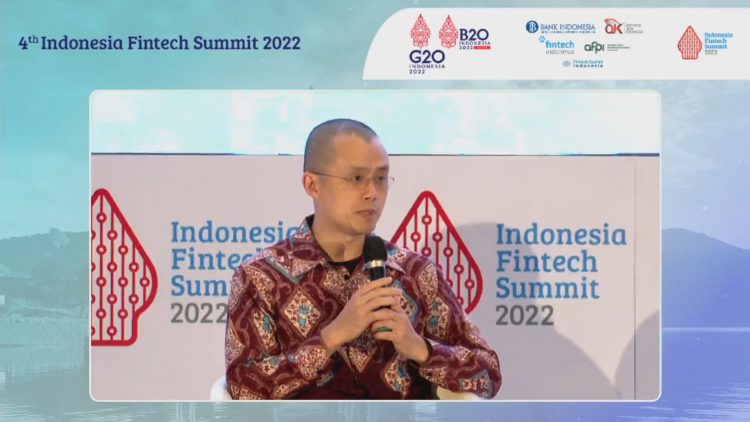Binance pulled out from its pledge to acquire FTX as “the deal did not make sense from a number of fronts,” said Changpeng “CZ” Zhao, chief of the world’s largest cryptocurrency exchange.
He said on Friday at the Indonesia Fintech Summit that there’s a “big hole” to fill from a financial perspective, and also pointed to an overlap in user demographics. “We cover all the regions they cover, and they have much less users than us,” Zhao said.
“From a technology or product perspective, I think we have a superior product,” he added. “So our original intention was, ‘let’s save the users’.”
Binance initially offered to buy FTX – which is mired in a liquidity crunch – in early Wednesday morning in Asia, but quickly backtracked the next day.
When news emerged that FTX could be misappropriating users’ funds with U.S. regulatory agencies reportedly stepping in to probe the exchange, “we’re like, okay, we can’t touch that anymore,” Zhao said.
Building trust
While the fallout of the FTX risk event has shaken investor sentiment across the industry, Zhao said more transparency from exchanges could help shore up investor confidence.
Binance has pledged to disclose its proof-of-reserves, and on Thursday published a list of the majority of its hot and cold wallet addresses.
“We published yesterday [a list of] six top coins, which covers actually 80% or 90% of the user funds,” Zhao said.
The FTX insolvency saga has put pressure on U.S. regulators and lawmakers as the crypto industry blamed the lack of regulatory clarity for pushing U.S. investors to trade in offshore exchanges, such as FTX.
Zhao said on Friday at the Indonesia conference that it was important for regulators to expand their range of scrutiny, and that regulators tended to just focus on know-your-customer (KYC) and anti-money laundering (AML).
“You’ve got to focus on the exchange operations,” Zhao said, adding that this would cover areas such as an exchange’s business model and its proof of reserves to show where its user funds are. “I think we’ll come into a lot more scrutiny on those fronts, but actually that’s good for the industry.”
Binance is mulling a reveal of its internal audit approach, according to Zhao.
“We also want to educate regulators all around the world,” Zhao said. “How do you do audits on crypto exchanges, not just KYC or AML, which is important, but how do you check cold wallets? How do you use balance reconciliations? How do you check transaction logs? How do you use on-chain monitoring tools to do this?”
Rafael Padilla, legal counsel and cofounder of industry group BlockDevs Asia, told Forkast on Friday that self-regulation is still key, as “it becomes a problem if we realize that bureaucrats are also not the most ideal regulator of decentralized ecosystems.”
“Private ordering is the optimal solution in regulating the crypto ecosystem, and we have the tools to enable decentralized communities to effectively self-regulate,” Padilla said.
However, just like traditional forms of regulation, private ordering – through blockchain-based protocols, smart contracts, and decentralized governance – will “experience birth pains before it matures and fully develop,” Padilla added.
Source by forkast.news






























